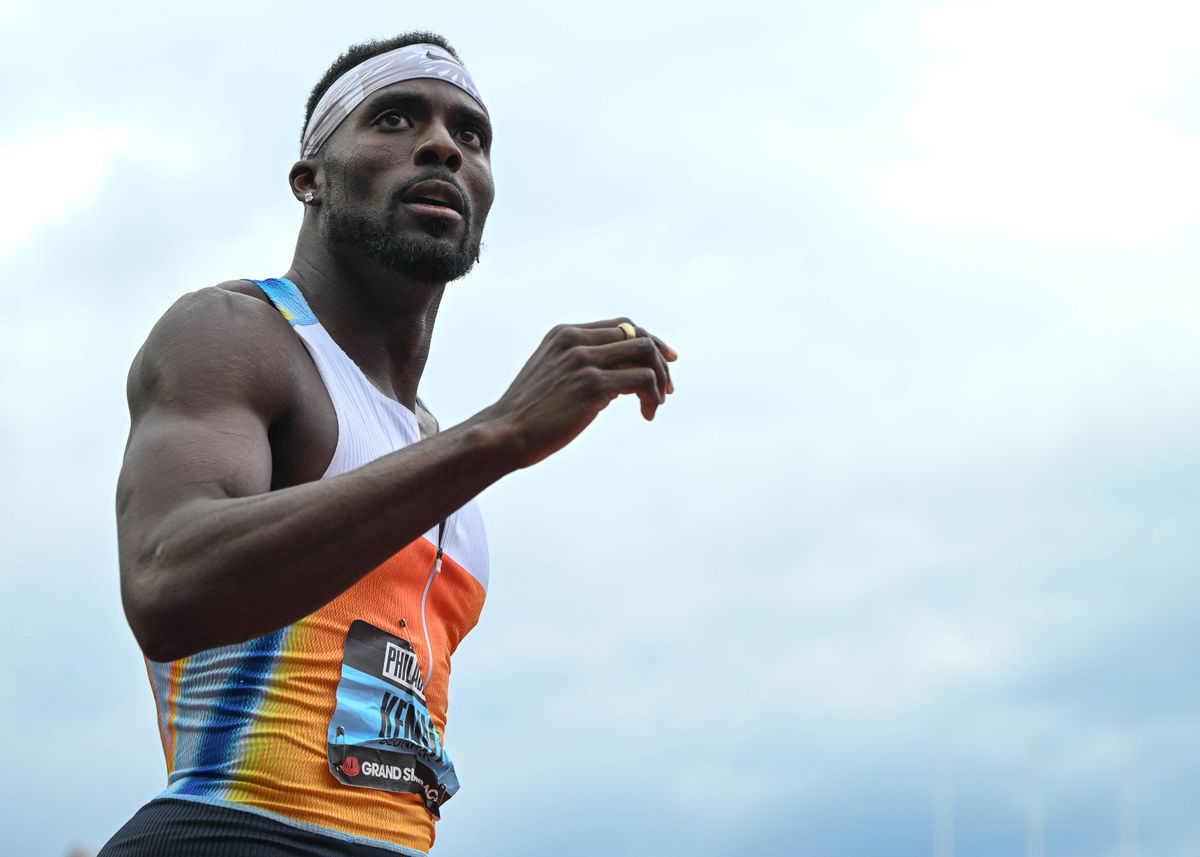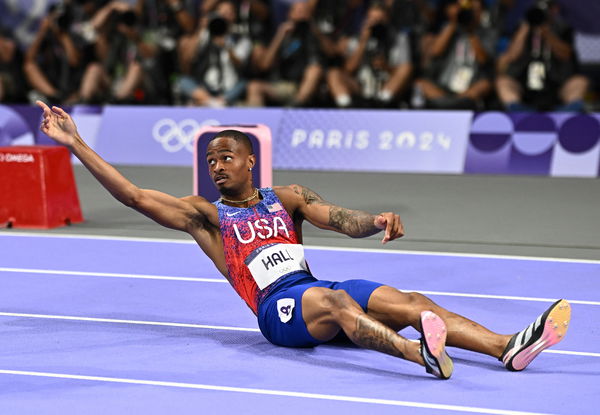
Imago
Grand Slam Track Philadelphia 2025 – Day One PHILADELPHIA, UNITED STATES MAY 31: Kenny Bednarek of USA wins in the Men s 200 Meters during the third leg of the Grand Slam Track series at the historic Franklin Field in Philadelphia, Pennsylvania, United States, on May 31, 2025. Stringer / Anadolu Pennsylvania United States. Editorial use only. Please get in touch for any other usage. PUBLICATIONxNOTxINxTURxUSAxCANxUKxJPNxITAxFRAxAUSxESPxBELxKORxRSAxHKGxNZL Copyright: x2025xAnadoluxStringerx

Imago
Grand Slam Track Philadelphia 2025 – Day One PHILADELPHIA, UNITED STATES MAY 31: Kenny Bednarek of USA wins in the Men s 200 Meters during the third leg of the Grand Slam Track series at the historic Franklin Field in Philadelphia, Pennsylvania, United States, on May 31, 2025. Stringer / Anadolu Pennsylvania United States. Editorial use only. Please get in touch for any other usage. PUBLICATIONxNOTxINxTURxUSAxCANxUKxJPNxITAxFRAxAUSxESPxBELxKORxRSAxHKGxNZL Copyright: x2025xAnadoluxStringerx
The stage was set. The 200m was the marquee event at the 50th Prefontaine Classic—billed as a clash between a reigning Olympic champion and one of America’s most consistent sprint powerhouses. Fans circled the date. Rivalries were reignited. And then, just hours before the gun, came the silence. The anticipation that had built for months dissolved into uncertainty, as not one but two headline acts vanished from the program. The name? Kenny Bednarek.
Watch What’s Trending Now!
For Kenny Bednarek and Quincy Hall, two of Team USA’s brightest lights, this weekend in Eugene was supposed to be about statements—of form, of momentum, of readiness. What followed instead were two very different announcements, both heartbreaking in their own ways, and both pointing to the fragile edge elite athletes walk every week.
ADVERTISEMENT
“I’ve decided to withdraw from tomorrow’s race,” Bednarek shared in a statement on Friday. “Dealing with some tightness today, and after talking it through with my team, we agreed it was best not to take any risks. These decisions are never easy. I was really looking forward to competing this weekend, but with Nationals less than a month away, staying healthy is the priority,” Bednarek further added.
His comments come as a disappointment to fans who had hoped to see the top two 200m men of the season square off once again. Tebogo, fresh from a commanding Olympic victory in Paris with a personal best of 19.46, appeared primed to test himself against the man who had bested him in last year’s Diamond League Final. In that Brussels race, Bednarek ran 19.67 to capture his second Diamond Trophy, overturning expectations and confirming his own credentials in the face of a rising star.
ADVERTISEMENT
Kenny Bednarek has scratched from the Prefontaine Classic men’s 200m.
He was set to race against Olympic champion Letsile Tebogo for the first time since beating him in last year’s Diamond League final. pic.twitter.com/lmkmXFgQz8
— Chris Chavez (@ChrisChavez) July 5, 2025
The decision to sit out in Eugene is not without consequence, but it reflects a strategic patience rather than caution born of uncertainty. Kenny Bednarek, who has logged three of his ten fastest 200m times on this track, knows well the value of timing in a long season. “Thank you for all the support,” he added. “It means more than you know. I’ll be back out there soon.”
ADVERTISEMENT
Thus, for now, the rivalry goes quiet. But this silence, like all temporary pauses in sport, only serves to make the next meeting feel that much heavier. However, this was not the only heartbreaking news coming in for the fans. Quincy Hall too, delivered a shocking update hours away from the 50th Prefontaine Classic.
ADVERTISEMENT
Yet another withdrawal…
Quincy Hall’s absence from the Prefontaine Classic did not come by way of an official announcement, nor through the typical channels of press or federation. It arrived instead through a screen-captured Instagram story, disseminated by analyst Travis Miller, which read: “Hate to say but I won’t be running due to a injury but I’ll be back go head get the proper treatment I need. Good luck to all the athletes running.”
Though casually worded, the message struck with finality. There was no elaboration on the injury’s nature, no timeline, and certainly no hint of reassurance. In a season designed to elevate Hall’s stature on the world stage, this unexpected withdrawal introduced a wave of doubt.
ADVERTISEMENT

Reuters
Paris 2024 Olympics – Athletics – Men’s 400m Final – Stade de France, Saint-Denis, France – August 07, 2024. Quincy Hall of United States celebrates after winning gold. REUTERS/Dylan Martinez
This marks the second high-profile meet Hall has exited in recent weeks, following a similar withdrawal from the Grand Slam Track meet in Miami. In each case, the silence surrounding his condition has become more pronounced than the injury itself. There have been no clarifying statements from Hall’s representatives, no explanation from event organizers, and no indication of when he might return to competition. What has emerged, instead, is a widening gap between expectation and reality. Hall’s physical brilliance, so recently affirmed, now appears locked behind an opaque wall of uncertainty.
ADVERTISEMENT
It is this ambiguity that unsettles. Injuries, of course, are not new to the sport. But Hall’s pattern, back-to-back scratches, each quietly handled, has begun to obscure what had seemed like a decisive ascension. The Prefontaine Classic was expected to be a confirmation of dominance. Instead, it served as a reminder that in elite athletics, the body’s quiet protest can speak louder than its victories.
ADVERTISEMENT
ADVERTISEMENT
ADVERTISEMENT